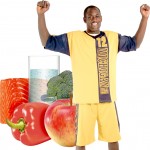
Many studies have shown that people with learning disabilities are at risk of overweight and obesity, The authors of this study were interested in the potential impact of beliefs, attitudes and behaviours of parents of adolescents with learning disabilities on the body mass index (BMI) of the adolescents and the parents. They also wanted to explore whether perception that parents had of the child’s weight status was accurate.
They used a survey methodology and collected information on BMI and attitudes and beliefs about nutrition and physical activity from 207 parents of adolescents with learning disabilities who attended schools which were participating in the Best Buddies Program, a non profit organisation that is dedicated to establishing a volunteer movement to create opportunities for one-to-one friendships for people with learning disabiltiies
The study found that around 45% of the adolescents were overweight or obese and over two-thirds of the parents were also either overweight or obese. They also found a significant difference in the adolescent’s BMI by parents’ description.
From analysis of the factors that impacted on the outcome, they found three: Family Healthy Habits, Parental Role and Parental Activity. The BMI of the adolescents significantly correlated with the parental role and parental activity. They found that young people with lower BMI had parents who agreed significantly more with questions about being role models. There was also a significant correlation between BMI for both parents and adolescents and frequency of fast foods purchased.
From their findings, the authors conclude that to reduce overweight and obesity in young people with learning disabilities, parents need tailored information about ways in which they can help their child in managing their weight, the implication of the findings on parental role is that the information should emphasise the important part parents play as role models and as providers for healthy choices for physical activity as well as nutrition.
BMI and attitudes and beliefs about physical activity and nutrition of parents of adolescents with intellectual disabilities, George, V et al, in Journal of Intellectual Disability Research, 55: 1054–1063
